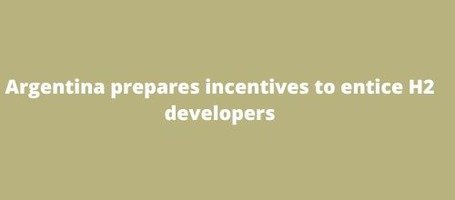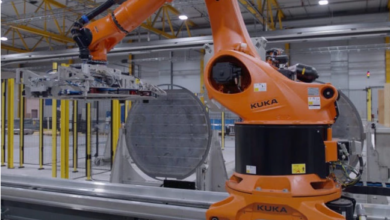Argentina prepares incentives to entice H2 developers

Argentina’s government has drafted legislation to entice hydrogen project developers to the financially stricken country, including proposals for low rates of tax on exported hydrogen and derivatives.
But the government may also introduce quotas to use locally made equipment and limit developers’ access to foreign currency markets.
Flavia Royón has submitted the draft legislation to the country’s National Congress. It will probably be debated publicly sometime in the next 2-4 weeks, government sources said.
Under the proposals, there will be no export duties on hydrogen and downstream products made from renewable and nuclear electricity for 10 years from the passing of the bill and a levy of only 1.5pc on hydrogen from gas with carbon capture and storage (CCS), according to a draft seen by Argus. After 10 years, this would rise to 1.5pc for renewable and nuclear-derived hydrogen and 3pc for CCS-enabled hydrogen. After 20 years, it would increase to 3pc and 4.5pc, respectively.
The government is also proposing to levy no tax on imported equipment for hydrogen projects for the first 10 years after the bill is passed. Similar tax incentives on equipment to attract developers have been offered by the governments of Egypt and Canada.
The draft document contains no provision for competitive land allocation, which is the other emerging tactic being deployed by aspiring hydrogen producers including Oman and the state of South Australia. The document also contains some rules that may be less enticing for international developers, such as quotas to use Argentinian-made equipment and restrictions on converting project revenues to dollars from Argentinian pesos.
Under the draft legislation, project developers wishing to qualify for incentives must include 35pc local content in their electrolysis plants and upstream renewable electricity assets. This would rise to 45pc in five years’ time and 50pc 10 years from the entry of the law. Blue hydrogen plants – hydrogen from gas with CO2 captured – must have 20pc Argentinian content initially, rising to 30pc after five years and 40pc after 10 years.
Such quotas are designed to stimulate growth in domestic manufacturing. Similar requirements have been implemented in Egypt and unofficially in the US. But the rule could become an obstacle given Argentina has virtually no domestic electrolyser manufacturing and only limited production of wind turbines.
On currency exchange, the draft legislation allows companies to access to up to 50pc of their foreign currency revenues from exports without facing the unfavorable government-set exchange rate designed to stem the outflow of foreign currencies from Argentina. The government has tightened controls on currency as it is dealing with near 100pc inflation according to the IMF, although it has granted similar exemptions to other export-focused industries such as the soybean market. A 50pc exemption may not be enough to attract developers, however, given that other locations are available with no such impositions on repatriating profits.
